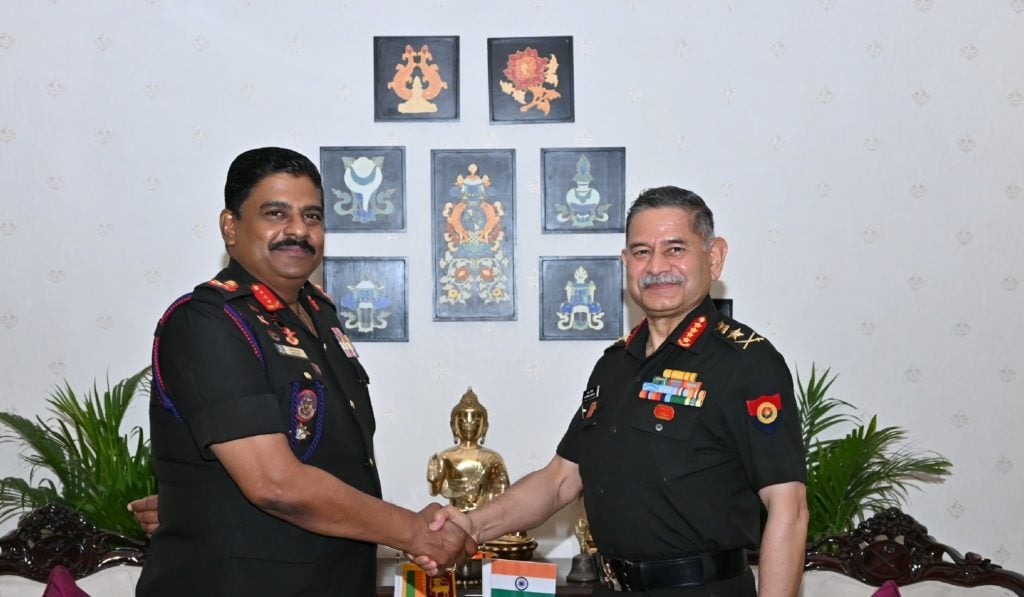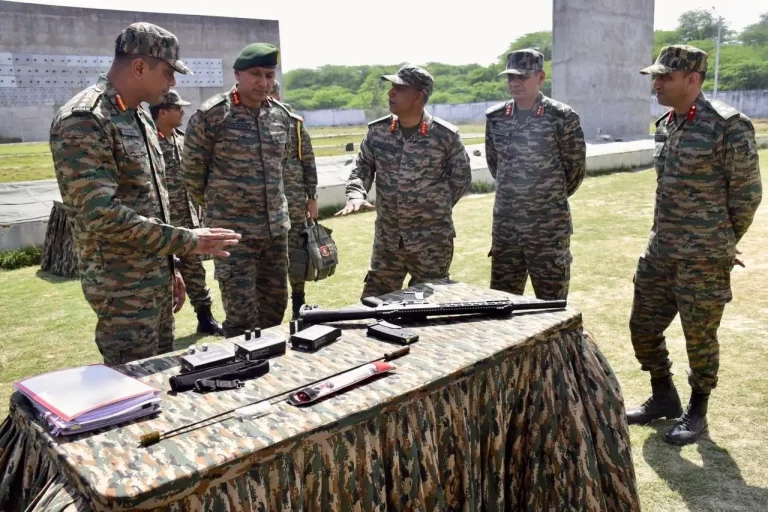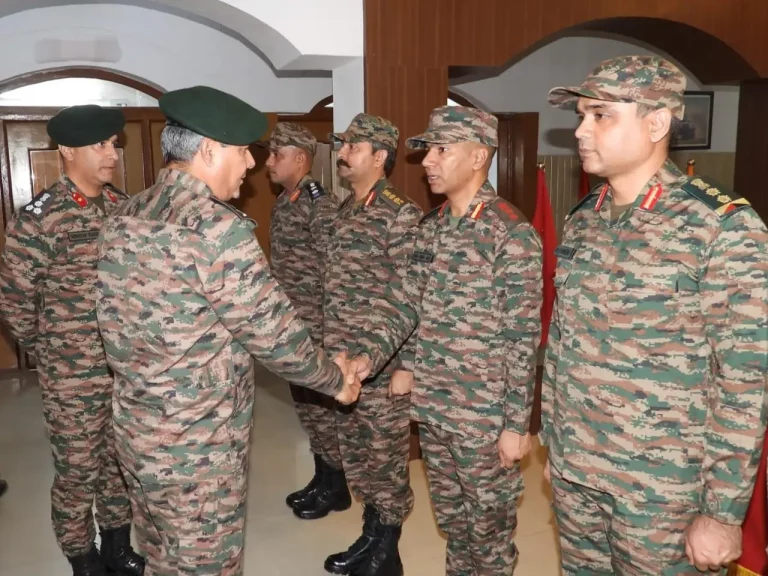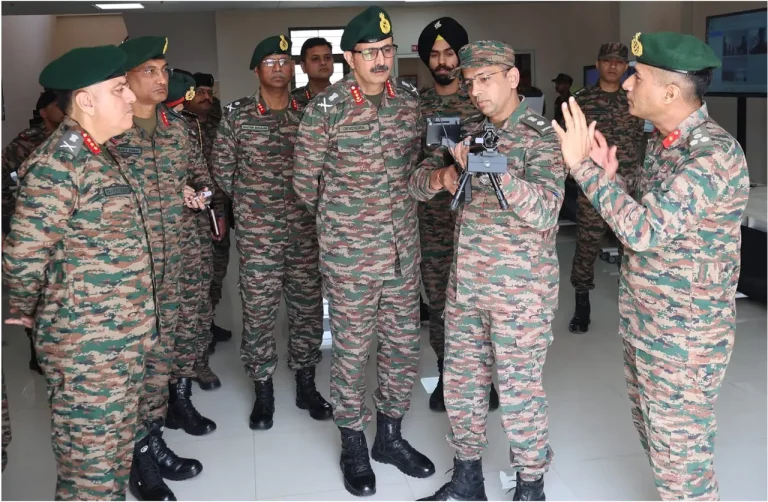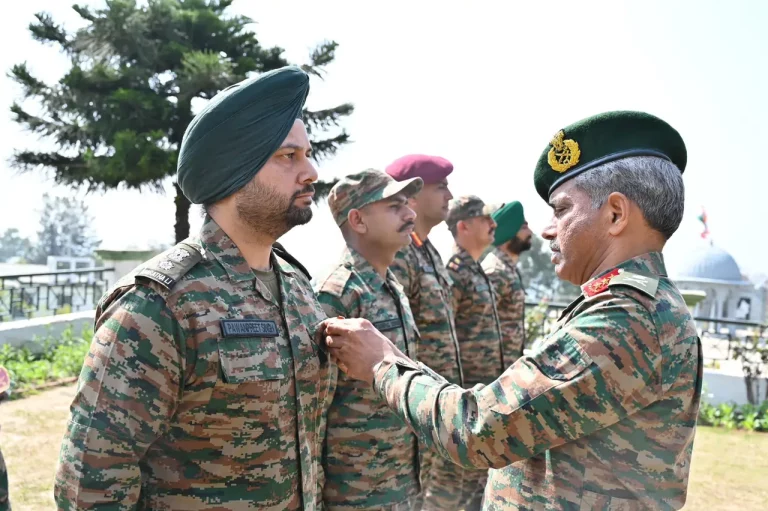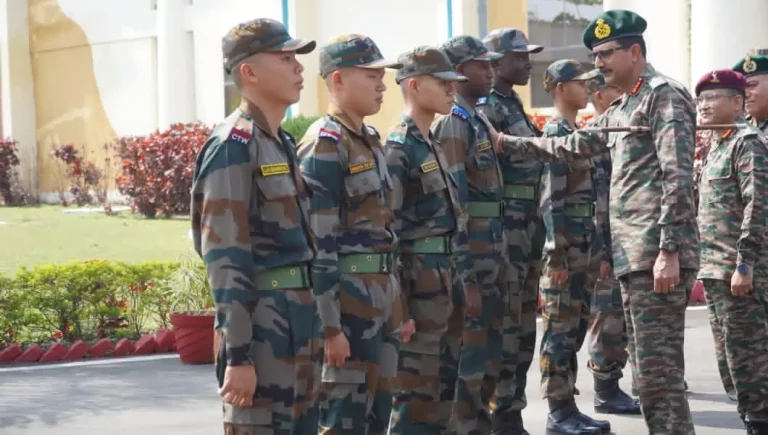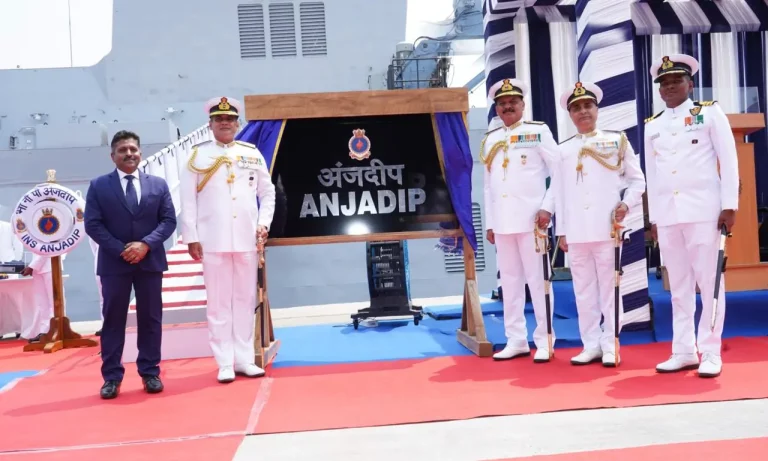India and Sri Lanka took a significant step toward enhancing their defense collaboration as Lieutenant General BKGM Lasantha Rodrigo, Commander of the Sri Lanka Army, conducted a high-level meeting with General Upendra Dwivedi, India’s Chief of Army Staff, at the Army House in New Delhi. This dialogue centered on strengthening military-to-military cooperation, advancing strategic collaboration, and reinforcing a mutual commitment to peace and stability within the Indian Ocean region.
The significance of this engagement is underscored by the current geopolitical landscape, which necessitates both nations to recalibrate their defense postures in light of emerging regional challenges. Rising concerns regarding China’s expanding naval presence have intensified the urgency for enhanced security coordination between India and Sri Lanka. The proposed $3.7 billion Sinopec oil refinery in Hambantota, coupled with previous Chinese efforts to provide JF-17 fighter jets to Pakistan, reflects the growing need for a unified response.
This bilateral discussion further aligns with a broader strategic framework, highlighted by the recent agreement involving India, Sri Lanka, and the UAE to transform Trincomalee into a regional energy hub. This initiative not only aims to counter Chinese influence in the region but also seeks to secure vital maritime trade routes essential for economic stability.
Historically, the defense relationship between India and Sri Lanka has evolved significantly since the 1980s, marked by the deployment of the Indian Peace Keeping Force and subsequent challenges. Following the end of the civil conflict in Sri Lanka in 2009, joint military exercises have seen a marked increase, with recent operational successes, such as Operation Sindoor, serving as platforms for the exchange of tactical expertise, particularly in counterterrorism and maritime security.
The ceremonial atmosphere of the meeting reflected mutual respect and military camaraderie, culminating in a shared vision for robust defense collaboration amidst a complex regional landscape. Both leaders emphasized the necessity of a strong bilateral defense relationship as a cornerstone for fostering stability and security in the increasingly strategic Indo-Pacific region.
